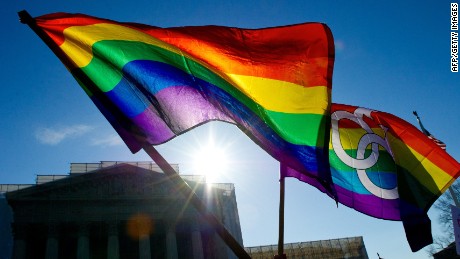It’s About More Than Flowers
Curt Freed and Robert Ingersoll got engaged just before The Supreme Court ruled for marriage equality, when the State of Washington was recognizing same-sex marriages. The couple were longtime customers of Arlene’s Flowers in Richland, Washington. The couple asked owner Barronelle Stutzman about arrangements for their wedding.
Stutzman, who is an ardent evangelical, denied the couple’s request saying she could not support a wedding that her faith forbids. “I was not discriminating at all,” she told CNN in 2013. “I never told him he couldn’t get married. I gave him recommendations for other flower shops.”
The couple sued along with the state attorney general. On February 16, 2017 the Washington State Supreme Court ruled that the florist violated the state’s anti-discrimination law.
The judges sided with Ingersoll and Freed’s argument that their case was about more than access to flowers, just as civil rights cases of the 1960s were about more than access to sandwiches. “As every other court to address the question has concluded, public accommodations laws do not simply guarantee access to goods or services. Instead, they serve a broader societal purpose: eradicating barriers to the equal treatment of all citizens in the commercial marketplace.”
With marriage equality now legal in all fifty states, this ruling joins “a growing body of case law rejecting business owners’ claims of first amendment protections as grounds for discrimination,” said Elizabeth Gill, the ACLU’s senior staff attorney and co-counsel for the couple. “It sends a really strong message that for the state of Washington inclusion and acceptance is incredibly important,” she said. “It’s an important contribution to the growing body of case law that rejects the idea that people operating in the public space can discriminate.”
“We’re thrilled that the Washington Supreme Court has ruled in our favor. The court affirmed that we are on the right side of law and the right side of history,” Freed and Ingersoll said in a statement. “We felt it was so important that we stand up against discrimination because we don’t want what happened to us to happen to anyone else. We are so glad that we stood up for our rights.”
http://www.cnn.com/2017/02/16/us/washington-florist-same-sex-wedding-discrimination-lawsuit/
Tags: Arlene's Flowers, Barronelle Stutzman, Curt Freed, Gay Marriage, LGBT, LGBT discrimination, LGBT Rights, LGBT wedding, LGBTQ, LGBTQ discrimination, LGBTQ rights, LGBTQ wedding, marriage equality, Robert Ingersoll, same-sex marriage, WA, Washington

